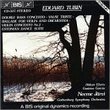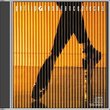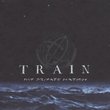| All Artists: Nico Title: Marble Index Members Wishing: 5 Total Copies: 0 Label: Elektra / Ada Release Date: 3/19/1991 Genres: Alternative Rock, Pop, Rock Styles: Hardcore & Punk, Progressive, Progressive Rock Number of Discs: 1 SwapaCD Credits: 1 UPCs: 075596109826, 755961098268 |
Search - Nico :: Marble Index
 | Nico Marble Index Genres: Alternative Rock, Pop, Rock
Like a bolt from heaven, Nico cast off the understated pace of her work as chanteuse of the Velvet Underground -- and the heavily orchestrated folk-rock of her solo debut, Chelsea Girl -- for the relentlessly bleak and cob... more » |
Larger Image |
CD DetailsSynopsis
Album Description Like a bolt from heaven, Nico cast off the understated pace of her work as chanteuse of the Velvet Underground -- and the heavily orchestrated folk-rock of her solo debut, Chelsea Girl -- for the relentlessly bleak and cobalt-blue cool avant-garde stylings of The Marble Index. Produced by former Velvets' John Cale, and employing the harmonium as a lead instrument, The Marble Index is revered now more than it ever was when released in 1969, as the gurgling headwaters source of Goth Rock. Similar CDsSimilarly Requested CDs
|
CD ReviewsStill, She's My Teutonic Queen.... W. T. Hoffman | Pennsylvania, United States | 06/25/2005 (5 out of 5 stars) "I've had this recording since I can remember, having picked it up on Vinyl, in the early 80s. It was love at first hearing, and I still love it. At the time, I was just discovering the Velvet Underground. After getting to know the first 3 Velvets albums, this is actually a logical advancement. Apparently, John Cale told Lou, after Lou heard this album and was apparently very impressed, that if Lou and Nico had not left the Velvet Underground, this is where the band could have gone. Those are bitter words, to a man that was just screwed over by his manager, and was putting out poprock music. (The 4th VU LP). So, is this something like an overlooked part of the VU legend, the way NICO's first album, Chelsea Girls is? Well, maybe part of it is, and yet, obviously, this is NOT rock, and is a giant step forward from Chelsea Girls. Nico and Cale both came out of the European tradition, of cathedrials, classical music, and opera. Altho not immediately evident, due to the spooky harmonium drones and post modern string arrangements by John Cale, I'd say that the european classical tradition, along with Fluxus drone experiments, would be the best way to say where this LP came out of, instead of the rock, folk and pop influences that you hear in Nico's first album. (which was almost part two of the first Velvet Underground LP). The connection between her first album, and MARBLE INDEX, is definately "It Was a Pleasure Then". Now, imagine that song, with surreal lyrics of utterly astonishing beauty, harmonium playing that was the sketch pad, upon which Cale based his arty string arrangements, and you have the place were MARBLE INDEX might have started. AMAZING. It creates a world seldom ever created by artists, working in the SONG style. One which is timeless, and totallly unique. The next album, DESERT SHORE, could almost be the continuation of this album, but with a little less crystal lattice work on the mediaval poppy arrangements. So, will you enjoy this LP? More than likely, and if you do, you will live with it in your soul. Maybe you'll fall madly in love with it, or just become friends, but one thing is certain, this album will remain a part of your life, long after so many other friendships and lovers have long left. It's music that lives that deeply in the soul, and apparently, came from such a deep place. Nico was a woman who's beauty was as apparent inside as out, and who gladly sacrificed first that beauty, and then her life, on the ultimate journey of uncompromised vision for her art. (Well, Ok she was a junky that fell off a bike, but hey, legend transcends the person, you know?) As for the delectible surprise that lives inside the CD/LP? I refuse to define or discribe music this ineffably lovely. Maybe the best praise I can give it, is to say, that it hasn't aged a day, and is as beautiful as when I first heard it in 1983. Like a gothic stained glass window, it's eternal beauty. Addictive as heroin to some, to others heady as a poem by Holderlin, or Rainer Marie Rilke, or the songs of Satie. Go on, give it a little taste." No one is there E. A Solinas | MD USA | 07/25/2004 (4 out of 5 stars) "The life of Velvet Underground chanteuse/model Nico was a life of tragedy that fame couldn't soothe and drugs couldn't blot out. And beautiful "The Marble Index" is much like Nico herself was -- beautiful, vaguely gothic and laced with sadness and darkness. The tinkly melody of "Prelude" leads up to the haunting chant of "Lawns of Dawns" and the string-led grandeur of "No One Is There." Things take a stumble with "Ari's Song," which is backed by painful whistling. But Nico got back on track with the majestic "Julius Caesar (Memento Hodie)," the frosty "Frozen Warnings," and the scintillating "Evening of Light." Two previously unreleased tracks finish it off: the melancholy "Roses in the Snow" and the a capella "Nibelungen." Musically, Nico is best known for her work in the Velvet Underground. But after she left that band, she took on a different type of music -- not as controversial, smoother and darker, with a heavy and distinctly Germanic flavor. It could have easily been depressing, but instead it's moody and hypnotic. Strings and harmonium form the core of this album, and it gives a vaguely medieval feel to the album -- imagine Nico playing inside a darkened cathedral. And her writing is almost as good, evocative and poetic. "Midnight winds are landing at the end of time/In the morning of my winter/When my eyes are still asleep..." Nico's vocals are still unique to this day. Her vocals are heavily accented and sort of thick, and there isn't a lot of vocal variation either. But her voice sounds strangely rich and vibrant, especially when she sings the more heartfelt lines like "No one is there!" Her voice is especially striking in "Nibelungen," where the music is gone and she simply sings, with long pauses between verses. The tragedies and sadness of Nico's life seep out of "The Marble Index," a gloriously dark and spellbinding collection of music. Wintry, polished, gothic, and a magnificent creation." Beauty and Terror Beketaten | Pangea | 12/01/2003 (5 out of 5 stars) "This is an album that i can listen to and be just as blown away every time. This is an album with timeless sound, confined to no era or technique of recording...an album at once ancient and modern...stirring in its beauty, its poignancy, and its horror. This album is the definition of revolutionary.
When Nico first picked up her harmonium, magic was bound to happen, especially as, with this album, she braved all popular opinion and created something purely from her own talents, with of course, the sonic aid of the brilliant John Cale to back up her vision. To start this album is to start a dream experience, from the prelude on and to the bonus tracks, amazing, murky, and impressionistic lyrics somehow manage to ignite a clarity in the subconcious. This is, as said, a brave album in any age.Though all the songs are stirring, beauteous, and memorable, such songs as "No One Is There", "Frozen Warnings", and "Evening of Light" are among its most powerfully defining moments. But the song "Evening Of Light", whcih was the original closer of the album, is most likely the most disturbing song i have ever heard. It begins like a far off, fanciful dream, but gradually, noises of impending doom from Nico's early memories of air-raids as a child in Germany begin to cause such lyrics as "midnight winds are falling at the end of time" and the title itself, to gradually become twisted and take on dreadful new meaning. This alone elevates this album to the ultimate surreal level of conflicting emotions. And for all who wish to hear the fanciful/wistful tones of the a-cappella "Nibelungen" and the song "Roses in the Snow", the album may be allowed to infiltrate the damaging soundscapes of track 8 with a kind of mystical, if not hopeful levety of sorts.I simply cannot say enough about this album, but it must be listened to to be understood. Buy it right now and embark on a unique dream; one of a brilliant woman who left us far too soon for us to know quite what to make of it all..." |

 Track Listings (10) - Disc #1
Track Listings (10) - Disc #1





![The Complete Caruso including The Original Victor Talking Machine Co. Master Recordings [Box Set]](https://nationalbookswap.com/cd//m/75/5975/6005975.jpg)




